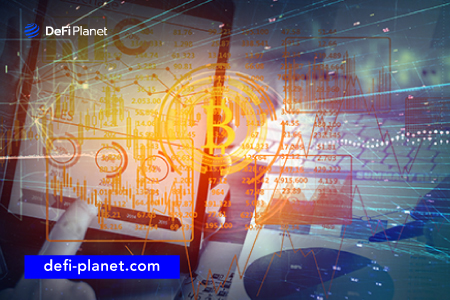The blockchain, also known as decentralized ledger technology, while still being an elusive concept for many, is increasingly being adopted globally. Accounting firms are adopting it to improve the 500 years old double-entry bookkeeping system. With adoption becoming so large, the numbers cannot be ignored.
Besides revamping the double-entry bookkeeping system, blockchain plays several roles in the accounting profession. These roles include transparency and fraud mitigation, upskill, and an increase in the new client base.
In this article, we’ll look at how blockchain influences accounting processes, as well as examine if the extent to this influence will displace accountants in the long run.
Let’s begin!
How blockchain can be infused into accounting
Accounting focuses on the transfer of ownership of an asset and maintaining a ledger of accurate information. It also deals with the communication of financial information and analyzing the same.
The blockchain, on the other hand, plays the same role as the accounting profession but securely and transparently. Integrating blockchain in the accounting professional will lead to all-around enhancement. This includes reducing costs, enhancing ledgers and reconciliation accounts, reducing fraud, and increasing transparency.
The blockchain can also be infused in accounting to ensure certainty in transaction history. This is because this technology keeps a record of all transaction data recorded on it. Because the data is cryptographically stored and immutable, it closes every loop for fraud.
The bookkeeping and reconciliation process in accounting is time-consuming. But blockchain technology simplifies the process and saves time.
Use Case of Blockchain in Accounting
Blockchain technology is used in many areas of accounting, including upskilling to fraud mitigation and time management. Here are some use cases of blockchain technology in accounting:
Fraud mitigation
When data is added onto the blockchain, it becomes immutable. This makes data unalterable, making it hard for fraud to take place.
For fraud to occur, it is required that the block where the transaction was originally added has to be removed along with all other subsequent blocks. This is a daunting process because it consumes time. It is also quite risky because a shared user can spot changes in the blockchain.
It is time-saving
Large amounts of data can be quickly processed and added to the blockchain with a logical sequence being linked to a corresponding data point. This is unlike other accounting procedures that take a lot of time.
With all logically structured data stored in a secure and immutable manner, standard operations like auditing will be less complex. This gives the accountant time to focus on other things.
It builds trust
Both accountants and their clients trust their entries because of the double-entry bookkeeping system. The blockchain pretty much does the same if not more than because each data is time-stamped, with unique hash links. With this technology, accountants would not have to struggle with multiple complex spreadsheets which could lead to the loss of some important details.
This means with blockchain, accountants and their clients will trust each other more and save a lot of time.
Upskilling opportunities
As an accountant, maintaining your professional development will make you stay relevant and highly competitive in the job market. Grabbing vital skills for the development of your career is important.
Learning how the blockchain works in accounting is important for accountants who want to be “hot cakes” in the near future. This is because the blockchain is gradually finding applications in virtually every area of the economy
Opportunity for new customers
Regular customers keep your business ticking but a time will come when you’ll need new clients to keep your business booming. Currently, blockchain technology is gaining waves and institutional adoption is ongoing. This means integrating blockchain in accounting will give a more diversified client base.
The millennial generation forms the majority of those investing in cryptocurrency and blockchain. When they need accountants, they will look for those with a touch of experience and expertise in blockchain.
Though your traditional clients will always want business as usual, diversification is rare and should be embraced.
Is it Possible for Blockchain to Displace Accountants in the Long Run?
Coupled with other automation processes like machine learning and artificial intelligence, blockchain technology will lead to a more level-headed accounting system. However, the probability that this will be done by accountants is very slim. The successful accountants, as stated earlier, will be those capable of assessing and interpreting blockchain records.
This is not to say accountants will be completely displaced, they will be needed at some point. If the blockchain makes the existence of debtors certain but fails to make the recovery and economic value certain, accountants will be brought in to solve this dilemma.
The blockchain will potentially revolutionize the accounting system by replacing many of the functions in the traditional accounting system. By transforming the mundane bookkeeping system, the technology poses a huge threat to accountants, prompting a rebrand.
With the blockchain in accounting, there are areas where accountants can add value. These include:
- Professional judgement: Even though transaction details are recorded on the blockchain in real-time, the expertise of professional accountants will be required to ensure that data that cannot be estimated are reliable. Big establishments like banks and insurance companies will always need the services of accountants to verify figures that are being uploaded onto the blockchain.
- Technical bridges: Even though the blockchain helps in the automation of accounting processes, however, the functionality of this technology depends on the underlying smart contract.
Let’s take a look at this brief example. If a blockchain is encoded to withhold tax on transactions for the federal government, the services of a professional accountant will be needed to advise on which transaction should be taxable and which should not.
While blockchain engineers may verify the logic of the blockchain’s architecture, accountants will be needed to analyse the business logic of the blockchain structure.
- Planning and advisory: While the accounting system is being revolutionised and technology is infused to finance to give rise to fintech companies, all of these processes are associated with some levels of risks. As such, accountants will need to leverage their expertise to help companies build effective business plans.
Challenges associated with infusing blockchain technology into accounting
So far, we’ve seen how the blockchain can transform the accounting industry, as well as improve business, mitigate fraud and promote transparency.
However, there are some challenges currently hindering the infusion of blockchain technology in accounting. Some of these challenges are resistance and lack of technical expertise.
Resistance could be triggered by a lack of interest in innovation as well as other personal insecurities. For instance, blockchain has several potential use cases in accounting and if accountants do not upskill their knowledge, they may feel threatened by the technology.
The dearth of blockchain expertise is another challenge hindering the rapid adoption of this technology in the accounting field. Because this technology still seems new, many professionals are yet to gather deep knowledge of how the blockchain works and how it could be used in accounting.
Also, when companies fail to specify the kind of blockchain expertise they need, they may not get the right hires.
To solve these challenges, firms should develop guidelines that control the blockchain deployment process. This will provide a better framework and structure for blockchain in accounting. Also, when deploying the blockchain, it should be specified to meet both accounting and operational needs. This will ensure it complies with auditing standards.
In Conclusion…
- The adoption of blockchain is becoming widespread globally. Coupled with predictive models such as machine learning and artificial intelligence, the blockchain is beginning to do wonders in the accounting field, revamping existing systems.
- The immutability and transparency properties of the blockchain have the potential to reduce fraudulent activities that may arise via the manipulation of data.
- Since every single piece of data stored on the blockchain is time-stamped, it simplifies audit processes and saves a lot of time.
- While there seems to be a misconception that as blockchain penetrates the accounting industry, it poses a risk of displacing accountants, this is not entirely true. Those who gather knowledge on how the technology works will remain relevant.





















